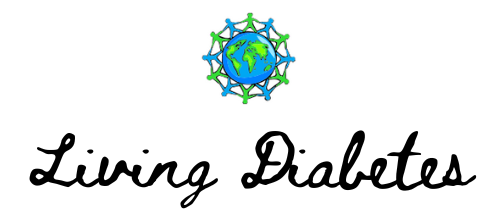Unveiling Acne
Acne, a prevalent skin condition, emerges when hair follicles become obstructed by oil and deceased skin cells. It often takes residence on the face, neck, chest, back, and shoulders, resulting in pimples and bumps healing at a leisurely pace. In many cases, as one pimple begins to retreat, others promptly take its place. Beyond its physical manifestations, acne can exert emotional distress and leave behind indelible scars. Yet, the silver lining lies in the availability of effective treatments. Swift initiation of treatment substantially reduces the risk of enduring damage.
Root Causes of Acne
The birth of acne is attributed to three primary factors: [1]
-
Overproduction of Oil (Sebum): Sebum, an oily substance, nurtures both hair and skin. As it journeys upwards along hair shafts, it exits through follicular openings onto the skin’s surface. In instances of excessive sebum and dead skin cells production, these elements accumulate within follicles, forming soft plugs.
-
Irregular Shedding of Dead Skin Cells: When dead skin cells are not efficiently shed, they can clog follicles and contribute to the development of acne.
-
Buildup of Bacteria: The presence of bacteria further exacerbates the situation, leading to inflammation and infection within blocked follicles.
These factors collectively give rise to a spectrum of acne manifestations, from whiteheads to blackheads and even painful nodules or cysts beneath the skin.
Factors That Influence Acne
Several triggers and aggravating factors set the stage for acne’s emergence: [2]
-
Hormones: Puberty ushers in hormonal fluctuations that prompt the sebaceous glands to enlarge and produce excess oil. Hormonal shifts during pregnancy and the use of oral contraceptives can also impact sebum production.
-
Medication: Certain medications, including those containing corticosteroids, hormones, or lithium, are known culprits in causing acne.
-
Diet: Consumption of milk and carbohydrate-rich foods, such as bread and chips, can elevate blood sugar levels and potentially worsen acne.
-
Cosmetic Contact: Certain cosmetics and lotions, if they come into contact with the skin, have the potential to trigger or worsen acne.
-
Genetics: A family history of acne increases the likelihood of experiencing this skin condition.
-
Friction and Pressure: External pressure, whether from items like cellphones, helmets, or tight collars, can provoke or exacerbate acne.
-
Stress: Although stress isn’t a direct cause of acne, it can contribute to its exacerbation.
Effective Treatments for Acne
Addressing acne requires a multi-faceted approach, involving various strategies to combat its root causes: [3]
-
Topical Solutions: Non-prescription topical creams can aid by drying excess oil, combating bacteria, and promoting the shedding of dead skin cells. However, they are best suited for milder cases of acne.
-
Prescription Creams: Medical-grade topical creams facilitate cell turnover, preventing follicular blockages. Topical antibiotics can also help eliminate surplus bacteria.
-
Antibiotics: A short course of prescription oral antibiotics can address inflammation and bacteria for moderate to severe acne. Often, oral antibiotics complement the use of topical creams.
-
Isotretinoin: Reserved for severe cystic acne that’s unresponsive to other treatments, isotretinoin is highly effective but not without potential side effects. Regular checkups are essential during its usage.
-
Oral Contraceptives: Some oral contraceptives can mitigate acne related to menstrual cycles.
-
Laser and Light Therapy: Innovative treatments, such as laser therapy and light therapy, target sebaceous glands and acne-causing bacteria, respectively. They offer alternatives for those who can’t tolerate traditional treatment methods.
-
Cosmetic Procedures: Chemical peels and microdermabrasion, when combined with other treatments, can yield positive results in addressing acne.
Nurturing Healthy Skin Habits
Supplementing medical interventions, adopting a diligent skincare routine can significantly influence acne control: [4]
-
Cleansing: Gently cleanse the skin using oil-free, water-based products.
-
Makeup: Opt for water-based or non-comedogenic makeup products and ensure thorough removal before bedtime.
-
Contact: Minimize contact between your face and external objects, like your hair or phone.
-
Sun Protection: Shield your skin from the sun’s harmful rays, especially considering some acne medications heighten sun sensitivity.
-
Post-Activity Hygiene: After exercise or strenuous activity, shower to prevent bacteria and sweat accumulation, which can exacerbate acne.
In conclusion, though distressing, acne is a manageable condition with many treatment options. Understanding its causes and implementing both medical and lifestyle measures empowers individuals to gain control over their skin’s health. By embracing a holistic approach, individuals can achieve clearer and healthier skin, fostering a sense of confidence and well-being.

